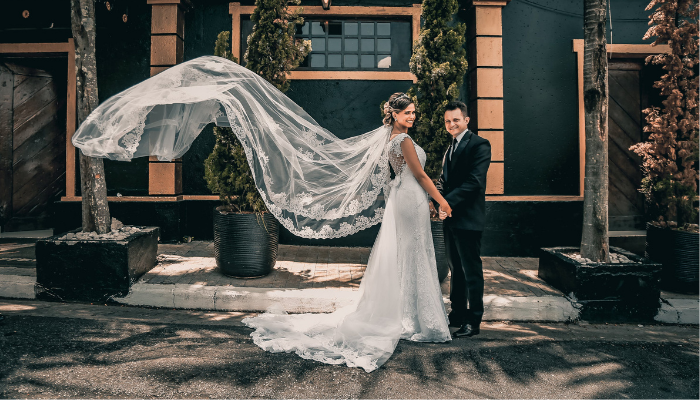Marriage …The Myers-Briggs Type Indicator (MBTI) is a tool used to help individuals understand their personality traits and how they may approach different aspects of life.
In this blog post, we will be exploring the marriage styles of individuals classified as Diplomats in the MBTI, including the Counselor (INFJ-A/INFJ-T), Healer (INFP-A/INFP-T), Protagonist (ENFJ-A/ENFJ-T), and Campaigner (ENFP-A/ENFP-T).

Diplomats are known for their strong emotional intelligence and value harmony and personal authenticity in their relationships.
They may approach marriage with a focus on emotional expression, connection, and mutual support. In this post, we will delve into the unique strengths and challenges of each Diplomat personality type and offer tips and strategies for building and maintaining a strong and healthy relationship.
It is important to remember that these are generalizations and individuals may exhibit traits from multiple personality types.
It is also important to keep in mind that no one approach to marriage is inherently better or worse than another, and that all relationships require communication, compromise, and effort to be successful.
here are a few more ideas to consider when introducing a blog post about the marriage styles of Diplomats in the MBTI:
Highlight the unique strengths of the Diplomat personality types, such as their strong emotional intelligence, empathy, and ability to create harmonious and authentic relationships.
Explore the potential challenges that may arise in relationships between individuals with different MBTI types, and offer tips and strategies for navigating and resolving conflicts.
Emphasize the importance of communication, emotional expression, and mutual support in successful marriages for Diplomats.
Include real-life examples or case studies to illustrate the concepts you are discussing and make the content more relatable and applicable to your readers.
Consider discussing the potential impact of an individual’s secondary cognitive functions on their approach to marriage.
For example, a Counselor with an Extraverted Thinking (Te) secondary function may approach marriage with a focus on emotional connection, but also place a high value on logical decision-making and efficient communication.
Table of Contents
Advocate (INFJ-A/INTJ-T)
The Advocate (INFJ-A/INTJ-T) is a personality type classified by the Myers-Briggs Type Indicator (MBTI).
Advocates are introspective and empathetic individuals who may approach marriage with a focus on emotional connection and mutual support.
They value harmony and authenticity in their relationships, and may appreciate a partner who is able to understand and respect their deep feelings and emotions.

In terms of communication, Advocates may value open and honest discussions and may appreciate a partner who is able to listen and understand their perspective.
They may place a high value on emotional expression and may prioritize connecting with their partner on a deep and meaningful level.
In terms of relationship dynamics, Advocates may place a high value on personal growth and self-improvement, and may appreciate a partner who is supportive of their individual goals and aspirations.
They may also value shared values and a sense of mutual respect in their relationships.
here are a few more original ideas to consider when exploring the marriage style of Advocate (INFJ-A/INTJ-T) personality types:
Discuss the unique strengths and challenges of the Advocate’s introspective and empathetic approach to marriage.
For example, they may excel at understanding and supporting their partner’s emotional needs, but may struggle with expressing their own emotions or setting healthy boundaries.
Explore the Advocate’s tendency towards authenticity and the importance of finding a balance between vulnerability and privacy in their relationships.
They may benefit from finding ways to connect with their partner while also respecting each other’s need for alone time and personal space.
Consider the role of communication and conflict resolution in successful marriages for Advocates.
They may prefer to approach issues through deep and meaningful discussions, but it is important for them to be open to their partner’s perspectives and to find ways to resolve conflicts in a respectful and constructive manner.
Offer tips and strategies for Advocates to build and maintain a strong and healthy relationship with their partner, such as finding ways to express their emotions and show appreciation for their partner, and making an effort to understand and meet their partner’s needs.
Include real-life examples or case studies to illustrate the concepts you are discussing and make the content more relatable and applicable to your readers.
This can help to illustrate the unique challenges and strengths of the Advocate’s approach to marriage and offer practical advice for building and maintaining a strong and healthy relationship.
It is important to remember that these are generalizations and individuals may exhibit traits from multiple personality types.
It is also important to keep in mind that no one approach to marriage is inherently better or worse than another, and that all relationships require communication, compromise, and effort to be successful.
Mediator (INFP-A/INFP-T)
The Mediator (INFP-A/INFP-T) is a personality type classified by the Myers-Briggs Type Indicator (MBTI).
Mediators are introspective and empathetic individuals who may approach marriage with a focus on emotional connection and personal authenticity.
They value harmony and mutual understanding in their relationships, and may appreciate a partner who is able to respect and support their unique perspectives and values.

In terms of communication, Mediators may value open and honest discussions and may appreciate a partner who is able to listen and understand their perspective.
They may place a high value on emotional expression and may prioritize connecting with their partner on a deep and meaningful level.
In terms of relationship dynamics, Mediators may place a high value on personal growth and self-improvement, and may appreciate a partner who is supportive of their individual goals and aspirations.
They may also value shared values and a sense of mutual respect in their relationships.
Here are a few more ideas to consider when exploring the marriage style of Mediator (INFP-A/INFP-T) personality types:
Discuss the unique strengths and challenges of the Mediator’s introspective and empathetic approach to marriage.
For example, they may excel at understanding and supporting their partner’s emotional needs, but may struggle with expressing their own emotions or setting healthy boundaries.
Explore the Mediator’s tendency towards authenticity and the importance of finding a balance between vulnerability and privacy in their relationships.
They may benefit from finding ways to connect with their partner while also respecting each other’s need for alone time and personal space.
Consider the role of communication and conflict resolution in successful marriages for Mediators.
They may prefer to approach issues through deep and meaningful discussions, but it is important for them to be open to their partner’s perspectives and to find ways to resolve conflicts in a respectful and constructive manner.
Offer tips and strategies for Mediators to build and maintain a strong and healthy relationship with their partner, such as finding ways to express their emotions and show appreciation for their partner, and making an effort to understand and meet their partner’s needs.
Include real-life examples or case studies to illustrate the concepts you are discussing and make the content more relatable and applicable to your readers.
This can help to illustrate the unique challenges and strengths of the Mediator’s approach to marriage and offer practical advice for building and maintaining a strong and healthy relationship.
It is important to remember that these are generalizations and individuals may exhibit traits from multiple personality types.
It is also important to keep in mind that no one approach to marriage is inherently better or worse than another, and that all relationships require communication, compromise, and effort to be successful.
Protagonist (ENFJ-A/ENFJ-T)
The Protagonist (ENFJ-A/ENFJ-T) is a personality type classified by the Myers-Briggs Type Indicator (MBTI).
Protagonists are outgoing and empathetic individuals who may approach marriage with a focus on emotional connection and mutual support.

They value harmony and authenticity in their relationships, and may appreciate a partner who is able to understand and respect their deep feelings and emotions.
In terms of communication, Protagonists may value open and honest discussions and may appreciate a partner who is able to listen and understand their perspective.
They may place a high value on emotional expression and may prioritize connecting with their partner on a deep and meaningful level.
In terms of relationship dynamics, Protagonists may place a high value on personal growth and self-improvement, and may appreciate a partner who is supportive of their individual goals and aspirations.
They may also value shared values and a sense of mutual respect in their relationships.
Here are a few more original ideas to consider when exploring the marriage style of Protagonist (ENFJ-A/ENFJ-T) personality types:
Discuss the unique strengths and challenges of the Protagonist’s outgoing and empathetic approach to marriage.
For example, they may excel at understanding and supporting their partner’s emotional needs, but may struggle with setting healthy boundaries or maintaining their own sense of independence.
Explore the Protagonist’s tendency towards authenticity and the importance of finding a balance between vulnerability and maintaining their own sense of identity in their relationships.
They may benefit from finding ways to connect with their partner while also maintaining their own sense of self and individuality.
Consider the role of communication and conflict resolution in successful marriages for Protagonists. They may prefer to approach issues through deep and meaningful discussions, but it is important for them to be open to their partner’s perspectives and to find ways to resolve conflicts in a respectful and constructive manner.
Offer tips and strategies for Protagonists to build and maintain a strong and healthy relationship with their partner, such as finding ways to express their emotions and show appreciation for their partner, and making an effort to understand and meet their partner’s needs.
Explore the Protagonist’s tendency towards leadership and the potential impact this may have on their relationships.
They may benefit from finding ways to lead and support their partner in a way that is respectful and considerate of their needs and desires.
It is important to remember that these are generalizations and individuals may exhibit traits from multiple personality types.
It is also important to keep in mind that no one approach to marriage is inherently better or worse than another, and that all relationships require communication, compromise, and effort to be successful.
Campaigner (ENFP-A/ENFP-T)
The Campaigner (ENFP-A/ENFP-T) is a personality type classified by the Myers-Briggs Type Indicator (MBTI). Campaigners are outgoing and energetic individuals who may approach marriage with a focus on exploration and trying new things.
They value flexibility and adaptability in their relationships, and may appreciate a partner who is able to keep up with their fast-paced and spontaneous approach to life.
In terms of communication, Campaigners may value open and honest discussions and may appreciate a partner who is able to challenge them intellectually.

They may prioritize logic and efficiency in their communication, and may prefer to discuss and resolve issues directly rather than relying on emotional expression.
In terms of relationship dynamics, Campaigners may place a high value on flexibility and adaptability, and may appreciate a partner who is able to keep up with their fast-paced and spontaneous approach to life.
They may also value shared values and a sense of mutual respect in their relationships.
Here are a few more original ideas to consider when exploring the marriage style of Campaigner (ENFP-A/ENFP-T) personality types:
Discuss the unique strengths and challenges of the Campaigner’s outgoing and energetic approach to marriage.
For example, they may excel at finding creative solutions to challenges and keeping things exciting and fresh, but may struggle with commitment and stability.
Explore the Campaigner’s tendency towards flexibility and adaptability and the importance of finding a balance between trying new things and maintaining a sense of stability in their relationships.
They may benefit from finding ways to compromise and meet their partner’s needs while also maintaining their independence and sense of adventure.
Consider the role of communication and conflict resolution in successful marriages for Campaigners.
They may prefer to approach issues logically and directly, but it is important for them to be open to their partner’s perspectives and to find ways to resolve conflicts in a respectful and constructive manner.
Offer tips and strategies for Campaigners to build and maintain a strong and healthy relationship with their partner, such as finding ways to express their emotions and show appreciation for their partner, and making an effort to understand and meet their partner’s needs.
Explore the Campaigner’s tendency towards innovation and creativity and the potential impact this may have on their relationships.
They may benefit from finding ways to incorporate their innovative and spontaneous approach to life into their relationships in a way that is respectful and considerate of their partner’s needs and desires.
It is important to remember that these are generalizations and individuals may exhibit traits from multiple personality types.
It is also important to keep in mind that no one approach to marriage is inherently better or worse than another, and that all relationships require communication, compromise, and effort to be successful.
Here are a few questions that you could ask individuals about their approach to marriage based on their MBTI Diplomat personality type:
- How do you prioritize emotional connection and mutual understanding in your relationship?
- How do you communicate with your partner about your needs and desires?
- How do you navigate conflicts and differences of opinion in your relationship?
- How do you balance your own personal goals and aspirations with those of your partner?
- How do you show appreciation and support for your partner’s goals and aspirations?
- How do you maintain a sense of harmony and authenticity in your relationship?
- How do you express your emotions and connect with your partner emotionally?
- How do you navigate challenges and maintain a sense of growth and self-improvement in your relationship?
Instead of asking specific questions about marriage, it is more appropriate to engage in open and honest communication with others and to listen to their thoughts and feelings. Some general questions that may be helpful in building and maintaining healthy relationships include:
1. How do you and your partner communicate and resolve conflicts?
2. How do you and your partner show appreciation and gratitude towards each other?
3. What are your expectations and boundaries in the relationship?
4. What are your partner’s goals and aspirations, and how do you support and encourage them?
5. How do you and your partner make time for each other and prioritize the relationship?
6. How do you and your partner express affection and physical touch in a way that is comfortable for both of you?
7. What are some activities or interests that you and your partner enjoy doing together?
8. How do you and your partner stay connected and engaged with each other?
9. What do you and your partner do to support each other emotionally and physically?
10. How do you and your partner handle challenge or difficult situations in the relationship?
11. How do you and your partner work towards building a strong foundation of trust and respect in the relationship?
12. What are some ways that you and your partner have adapted and grown together as a couple?
13. How do you and your partner maintain a sense of balance and well-being in the relationship?
14. How do you and your partner support each other’s personal growth and development?
15. What are some ways that you and your partner have learned and grown from each other?
16. How do you and your partner express love and affection towards each other?
17. What are some ways that you and your partner have fun and enjoy each other’s company?
18. How do you and your partner support each other’s goals and aspirations?
19. What are some ways that you and your partner have learned to compromise and find mutually beneficial solutions?
20. How do you and your partner handle difference in opinion or perspective?
It is important to remember that each person and each relationship is unique, and it is important to approach relationships with an open mind and a willingness to adapt and grow.
It is important to avoid making assumptions about another person’s behavior or intentions based on preconceived notions or stereotypes.
https://psytify.com/personality-types/

https://psytify.com/flirting-styles-mbti-sentinels-2023/
https://psytify.com/famous-people-according-to-their-mbti-type/
https://psytify.com/what-is-mbti/

